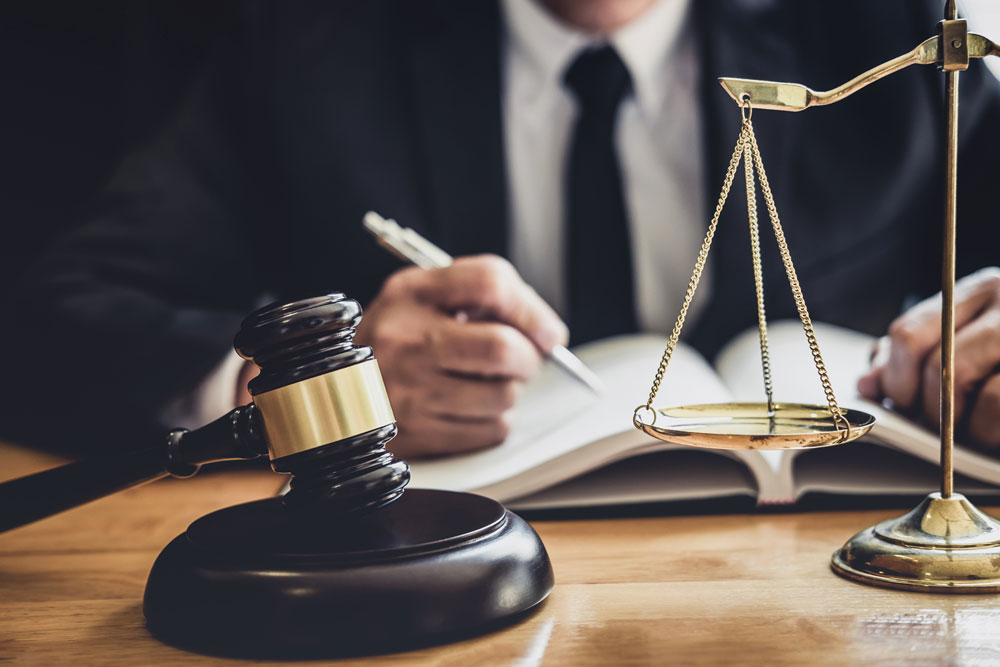
The Appellate Division concluded with the following in relevant part: While we conclude the plain language of N.J.S.A. 2C:43-2(b)(2) authorizes defendant’s custodial sentences as a condition of his probation, we also observe a probationary sentence conditioned on service of the mandatory period of parole ineligibility is consistent with the Legislature’s “criminalization of the act of driving while one’s license is suspended for a second or subsequent [DUI] conviction” as part of its “arsenal of deterrence.” State v. Rizzitello (App. Div. 2016). Those convicted of a violation of N.J.S.A. 2C:40-26(b) have previously had their driver’s licenses suspended on at least two occasions, yet they choose to continue to operate motor vehicles at the risk of being convicted of a fourth-degree crime and sentenced to a minimum 180 days of imprisonment. Indeed, here, defendant not only drove while on suspension in violation of N.J.S.A. 2C:40-26, he did so on one occasion while under the influence.
“This court has acknowledged the escalating penalties imposed by the Legislature in an attempt to deter chronic drunk drivers,” and N.J.S.A. 2C:40-26 serves that purpose by imposing “a mandatory period of ‘imprisonment’ for [the] offense,” thereby protecting the “public safety” by ensuring, at least during a defendant’s term of imprisonment, that he or she does not “continue to drive despite the license suspension.”
The need to deter a defendant who has a history of DUI or refusal offenses from driving while suspended in violation of N.J.S.A. 2C:40-26 does not end with a release after a 180-day minimum mandatory sentence. It is wholly consistent with “the State’s strong policy objective of deterring repeat drunk driving offenders,” to require defendants who are convicted of violating N.J.S.A. 2C:40-26 to obtain the benefit of probation supervision following release from imprisonment. Probation supervision provides access to resources to address issues related to alcohol and substance abuse, see N.J.S.A. 2C:45-1(b)(1) to (14), and provides continuing deterrence because a violation of probation may result in a defendant’s resentencing to a period of imprisonment. The Legislature’s decision to allow split sentences for those convicted of violating N.J.S.A. 2C:40-26 is therefore not only supported by the plain language of N.J.S.A. 2C:43-2(b)(2), it is also consistent with the policies underlying N.J.S.A. 2C:40-26.
In sum, the plain language of N.J.S.A. 2C:43-2(b)(2) authorizes the split sentences imposed by the court on defendant’s convictions for violating N.J.S.A. 2C:40-26(b). The court imposed a custodial term of a length–360 days–that qualifies as a term of imprisonment permitting imposition of a split sentence, N.J.S.A. 2C:43-2(b)(2), and defendant fails to identify any other statute within the Criminal Code that otherwise provides the term of imprisonment for a split sentence may not include a mandatory period of parole ineligibility. We therefore reject defendant’s claim the split sentence is unauthorized or illegal.
While the Court’s opinion has a ring of logic to it with regard to the justifications for harsher penalties related to DUIs, there is a flip side to these arguments in the case of convicts with relatively low Alcotest readings who were convicted of a DUI(s). The flip side is that through the 1970s the legal limit in New Jersey and most states for a per se DUI was .15. That figure has been reduced all the way to .08. This roughly equates to two beers during a one-hour meal at a restaurant. This reduction of a scientific limit due to non-scientific political pressures is fundamentally unfair.
